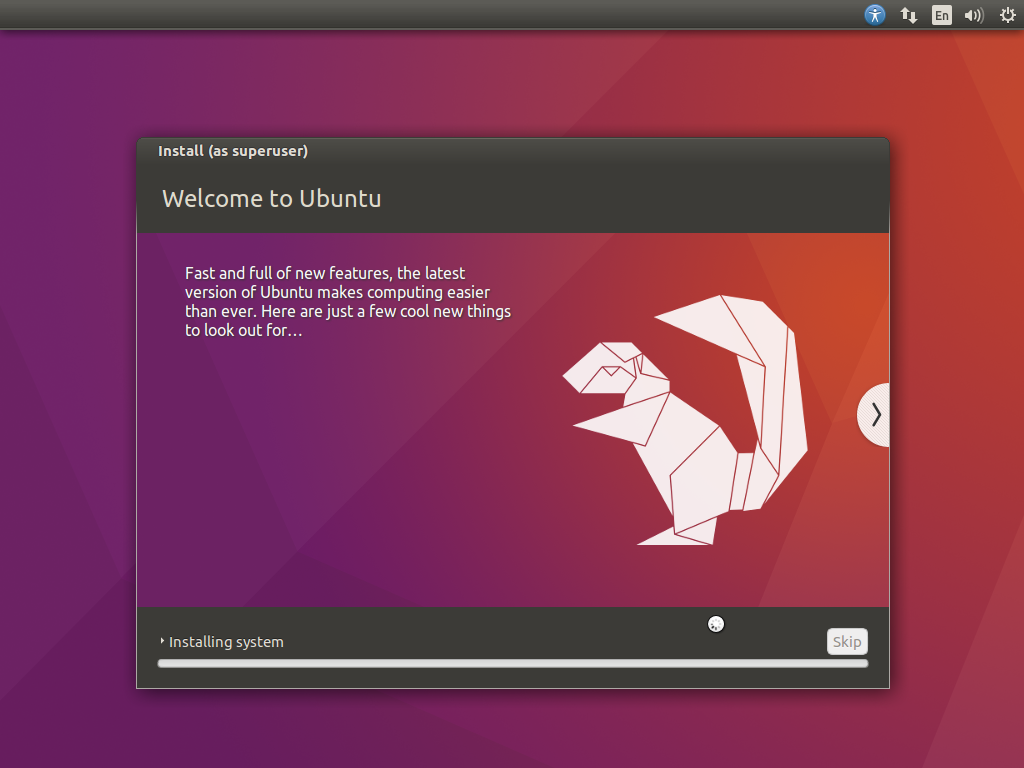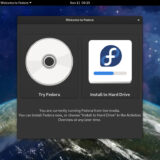Fedora 26 new features: Boltron server, LxQT spin, and more

Fedora is the fast-paced bleeding-edge distribution of Red Hat. Fedora 26 is the first release of 2017 the other being Fedora 27. Let’s discover what lies in the future of this popular Linux distribution especially among developers.
When will it be released?
Fedora 26 is scheduled to be released on 7th July 2017 11th July 2017.
How do I install Fedora 26?
Fedora 26 “Boltron” server: Modular Fedora Server
The most important change in this release is probably the Modular Fedora Server. This new project, developed by the Fedora Modularity team, aims to create a modular Linux Operating System that allows different versions of different applications to run on the same system. Hard to understand? This phrase from the modularity team explains it pretty well:
How do I get a cutting-edge runtime along with a stable database?
This modularity is achieved by bundling runtime and application together in “modules“. These modules are decoupled from each other, allowing a cutting-edge application and a stable application to live in their own module even if they depend on different versions of the same runtime.
Fedora 26 will ship a modular server, its codename? Boltron. Although the name is good and the product seems fantastic, Boltron will be released as preview for the time being. This will allow people to try this new technology and developers to get feedback. Boltron won’t quite be ready for prime time, but it looks quite promising. If you’re interested, you can find more here on Modularity Documentation.
System-wide changes
- SSSD fast cache for local users: SSSD is a daemon used to interface with directory services to provide centralised features like domain login. This feature enables local user to be resolved through SSSD cache. This makes the process quicker since SSSD conflicts with the old nscd and, currently, the system has to open local files in order to resolve local users.
- Python Classroom Lab: a new spin aimed to Python teachers and instructors.
- GCC7: Fedora 26 will support GCC7 and all packages will be rebuilt using this version.
- Pkgconf as system pkg-config implementation: pkgconf will be used as default pkg-config implementation to better support .pc files and provide a stable integration library for ABI/API.
- Enable systemd-coredump by default: systemd-coredump will be enabled by default, core dumps will be accessible through coredumpctl.
- Fedora 26 C/C++ Compilation Flags Updates: this change updates the default C/C++ compilation flags, most notably it drops an optimization for older Intel Atom CPUs. You can find more here.
- Retire Synaptics Driver: the Synaptics touchpad driver (xorg-x11-drv-synaptics) has been superseded by xorg-x11-drv-libinput since Fedora 22. This change aims to remove (where applicable) the Synaptic driver, and use the newer one. The old driver will be contained in the xorg-x11-drv-synaptics-legacy package so users will be able to install it anyway if they desire so. In the past versions, users who wanted the Synaptic driver also needed to modify configuration files, with this change the package will be already configured without requiring further user configuration.
- AARCH64 – 48-bit VA: currently AARCH64 uses a 42-bit address space, with this proposal the virtual address space will be extended to 48-bit.
- OpenSSL: version will be bumped to 1.1.0 which brings new cryptographic algorithms and a “new API that allows for keeping ABI stability in future upgrades“. Also, a compatibility package for OpenSSL 1.0.2 will be included to allow compatibility with older or not yet updated applications.
- DNF: will be updated to version 2, which is the only actively developed upstream version of DNF. DNF 2 contains many user-requested features, but it also diverges from DNF1 by design and breaks YUM compatibility.
Self contained changes
- Arm Support In FMW: the Fedora Media Writer will gain the support to write ARM images.
- Libpinyin 2.0: libpinyin 2 provides more sentences candidate for pinyin transcription.
- Replace Coolkey with OpenSC: there are currently different libraries that support the same smart cards. The intention is to replace Coolkey with OpenSC as default PKCS#11.
- Container Minimal Image: “a new container image that contains as little as possible, but also still provides the ability to install packages from dnf repositories.”
- Docker Overlay 2: change default Docker storage to OverlayFS using overlay2 driver.
- LXQt Spin: since LXQt, a desktop environment born from the fusion of LXDE and Razor-Qt, is becoming more and more complete, a spin of Fedora will be created.
- Fontconfig cache directory change: the new path will be /usr/lib/fontconfig/cache (the current one is /var/cache/fontconfig).
- Golang buildmode PIE: build mode will default to PIE, applications that depend on the Golang macro will now produce Position Independent Executables.
- Authconfig Cleanup: unused code will be removed from authconfig (both GUI and TUI).
- Java/OpenJDK enforces the system-wide crypto policy: The system-wide crypto policy is currently enforced by the OpenSSL, GnuTLS and NSS TLS libraries. This changes enhances OpenJDK to comply with the system-wide crypto policy.
- Blivet-GUI in Anaconda: blivet-gui is a graphical interface tool to manage storage. This proposal aims to integrate this tool in Anaconda, the Fedora installer, to allow better partitioning for advanced users.
- BIND 9.11: the BIND DNS server has been updated to version 9.11. You can find more about here.
- OpenSSH Crypto Policy (Client): OpenSSH will follow system-wide crypto policy (much like the OpenJDK change aforementioned).
Developers
- Python updated to version 3.6.
- Python 3 C.UTF-8 locale: “The standalone Python 3.6 binary will automatically attempt to coerce the C locale to C.UTF-8, unless the new PYTHONCOERCECLOCALE environment variable is set to 0.”
- Docker SDK for Python bumped to version 2.
- GlibC updated to version 2.25.
- LDC updated to version 1.1.0.
- Golang updated to version 1.8.
- Ruby updated to version 2.4.
- GHC updated to version 8.0.
- Boost updated to version 1.63.
- PHP updated to version 7.1.
- Zend Framework updated to version 3.
Gnome 3.24
Fedora 26 will include Gnome 3.24, one of the most popular desktop environments among Linux users. This release of Gnome has a focus on usability, especially on the system settings app. It also includes a new app called Recipes which contains community-contributed food recipes. Here’s a preview of Gnome 3.24:
- 2020 A year in review for Marksei.com - 30 December 2020
- Red Hat pulls the kill switch on CentOS - 16 December 2020
- OpenZFS 2.0 released: unified ZFS for Linux and BSD - 9 December 2020









Recent Comments